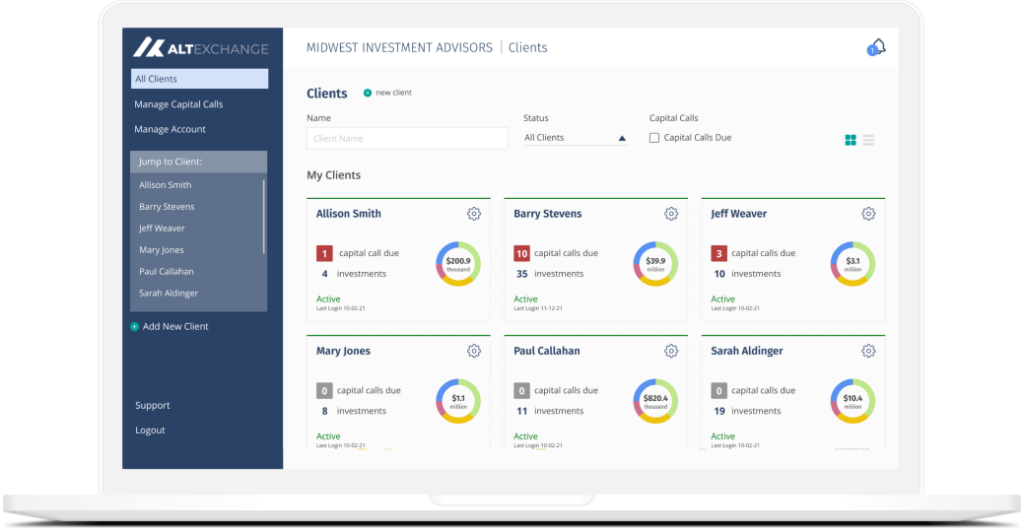Financial advisors are increasingly interested in alternative investments. In fact, 90% of advisors plan to increase allocations over the next two years, according to new research by CAIS and Mercer. But alternative investments cover a vast range of investments, with endless options to choose from.
Here are five alternative investments advisors should consider offering to clients who are interested in diversifying their portfolios.
1. Private Equity
Private equity funds are pooled investment vehicles managed by private equity firms — similar to a mutual fund.
Private equity is one of the most popular alternatives among high-net-worth investors, and for good reason. The asset class has outperformed the S&P 500 for more than a decade, and has low correlation to the markets.

However, private equity does have fewer regulations than traditional investments and are often only available to accredited investors. That said, through online funding platforms, accessibility is becoming more available to non-accredited investors as well.
2. Real Estate
Real estate is one of the most popular alternative investments because it is widely accessible and less complex than other options.

Traditional real estate investors buy residential or commercial properties and then generate profits through ongoing lease payments or by renovating the properties and reselling them.
However, some investors and advisors prefer a hands-off approach and invest in crowdfunding platforms or purchase shares of real estate funds and REITs.
3. Hedge Funds
Hedge funds are actively managed investment vehicles that use complex trading strategies and alternative assets to generate high returns for shareholders. A hedge fund might invest in distressed assets, options and other derivatives, currencies, as well as long and short equity positions.
Many hedge funds also use leverage to boost their returns. They can be more liquid than other alternative investments, which is an advantage — but hedge funds operate with far less SEC oversight than mutual funds or ETFs. Hedge funds are typically available only to accredited investors.
4. Private Debt/Credit
Private debt is a loan made to a business or individual from a lender. The lender provides an influx of cash and in return, the borrower repays the money plus interest.

Private investors and lenders offer borrowers loans that may be more affordable than what traditional banks can offer. In return, private lenders earn higher returns than they would from public debt securities.
5. Venture Capital
Venture Capital (VC) are investments that finance early-stage start-up companies with high growth potential.
Up until recently, only accredited investors could access VC investments through specific funds. Today, platforms like MicroVentures and SeedInvest provide access to the VC market for accredited and non-accredited investors.
How to Manage Clients’ Alternative Investments
Offering alternative investments is only the first step for advisors. It’s important to note that as interest in alternatives increases, so does complexity and fragmentation, calling for more advanced aggregation services like AltExchange.

AltExchange eliminates common pain points including fragmentation, unstructured data, scattered documents, limited performance visibility, inability to track and bill on alternatives, and more. With AltExchange, advisors can easily offer, track, report, and bill on alternative investments.
If you’re an advisor offering or planning to offer alternative investments and are looking for a scalable, streamlined solution, please get in touch.